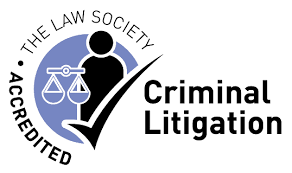Online harassment legal advice
- Details
- Hits: 24884

What to do if someone is harassing you on the internet
Victims of online harassment, intimidation, and defamation often feel hopeless and powerless to act. In many instances they feel scared and paralysed.
What the police can do to help if you are being harassed online
Criminal prosecutions against online harassers
Is it worth taking out a civil injunction for online harassment
Help with online harassment
What the police can do to help if you are being harassed online
If someone is harassing you on the internet, or if you have become a victim of an online reputation attack you would naturally consider reporting the harassment to the police. If you have tried to report your attackers to the police, you would have probably been shocked and disappointed to learn that your local police force either was not interested, didn’t understand the problem, or is underfunded and unable to invest time and resources to investigating your case.
Even if your case was investigated, in most cases it would take a very long time for the criminal justice system to come up with any real solution to your problem. Police forces across the UK are not equipped to deal with online harassment and online intimidation, save for exceptional cases where they decide to invest the required resources in helping a particular individual. Very few senior police officers have any understanding of the psychology of the internet, how the internet really works and how online harassers use technologies and techniques to bully and intimidate their victims.
If your local police force agreed to investigate your online harassment case, they would often warn you that the case is likely to take a very long time to investigate. Furthermore, once investigated, a case would have to be made to the Crown Prosecution Service before it could proceed to trial. Often, the investigating officer will find it challenging to obtain the budgets and other resources to pursue a proper, thorough investigation of your online harassment, which may involve obtaining information from organisations that are located outside the jurisdiction, for example in the USA. It would be many months before the courts would deal with the matter, and in the meantime the abusive internet posts are likely to remain in place.
Online Harassment Legal FAQ
While police resources and understanding of online harassment may vary, they can investigate allegations, identify perpetrators, and take action against online harassers. However, due to potential limitations, victims may also need to seek civil remedies such as injunctions or pursue private prosecutions for more immediate and tailored results.
Yes, it is often worth taking out a civil injunction for online harassment as it can provide quicker relief than criminal proceedings, and the standard of proof is on the balance of probabilities. A civil injunction can order the harasser to cease their activities and remove harassing content, offering immediate and direct protection to the victim.
Legal support can provide victims of online harassment with strategies to stop the harassment, remove harmful content, and obtain compensation for damages. Skilled solicitors can navigate complex legal systems, work to unmask anonymous harassers, and use laws like the Protection from Harassment Act to secure injunctions and remedies for clients.
Information supporting victims of online harassment includes understanding their legal rights, the process for obtaining injunctions, ways to report harassment to platforms and authorities, and tips for documenting and responding to online abuse. Websites dedicated to helping online harassment victims often provide case studies, resources for finding legal support, and guidance on coping strategies.
Victims may face challenges such as a lack of understanding or interest from local police forces, jurisdictional issues, or concerns about further harassment and lack of anonymity. They may also feel disillusioned by the potential length and inefficiency of criminal investigations and the possibility of the harassment continuing during the process.
Criminal prosecutions against online harassers
In the case of Sean Duffy, a case which was taken up by the police, it took 18 months to bring a conviction in a fairly straightforward matter of internet harassment and in the case of Paul Britton and the web design company Origin Design, a successful criminal prosecution took place after nearly 2 years, and even then, only because the victim hired a specialist online harassment lawyer, to gather crucial evidence and hand them to the police.
To make matters worse for the online harassment victim, in cases of harassment on the internet, it is questionable whether a criminal court has the power to request that the offender removes the offending posts under a normal restraining order. This is because restraining orders may only require the offender to refrain from taking action as oppose to requiring him or her to take positive action, such as to remove internet pages. Furthermore, if the offender is sent to prison, it is clear that any requirement of him or her to take positive action to remove an offending or harassing webpage is not going to be practical.
Is it worth taking out a civil injunction for online harassment
It is worth considering taking out a civil injunction for online harassment. A civil injunction is often quicker to obtain and the standard of proof is lower, which means in many cases, it would be easier to obtain a civil injunction for online harassment than wait for the conclusion of a criminal proceedings which might or might not succeed, which could take years to complete.
Often, to secure the removal of harassing webpages from the internet, you will need to apply for a civil injunction under the Protection from Harassment Act. You will then proceed to enforce the harassment injunction directly on the offender and if this is not practical, on the website operators, the hosts of the offending website and on the search engines such as Google and Bing.











